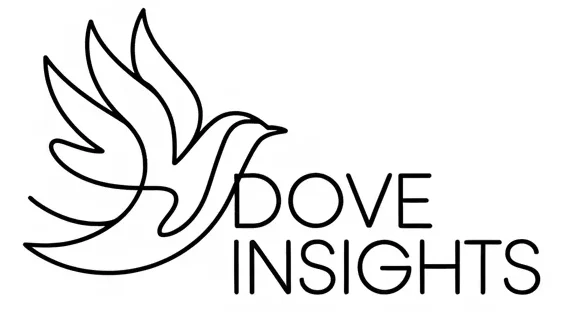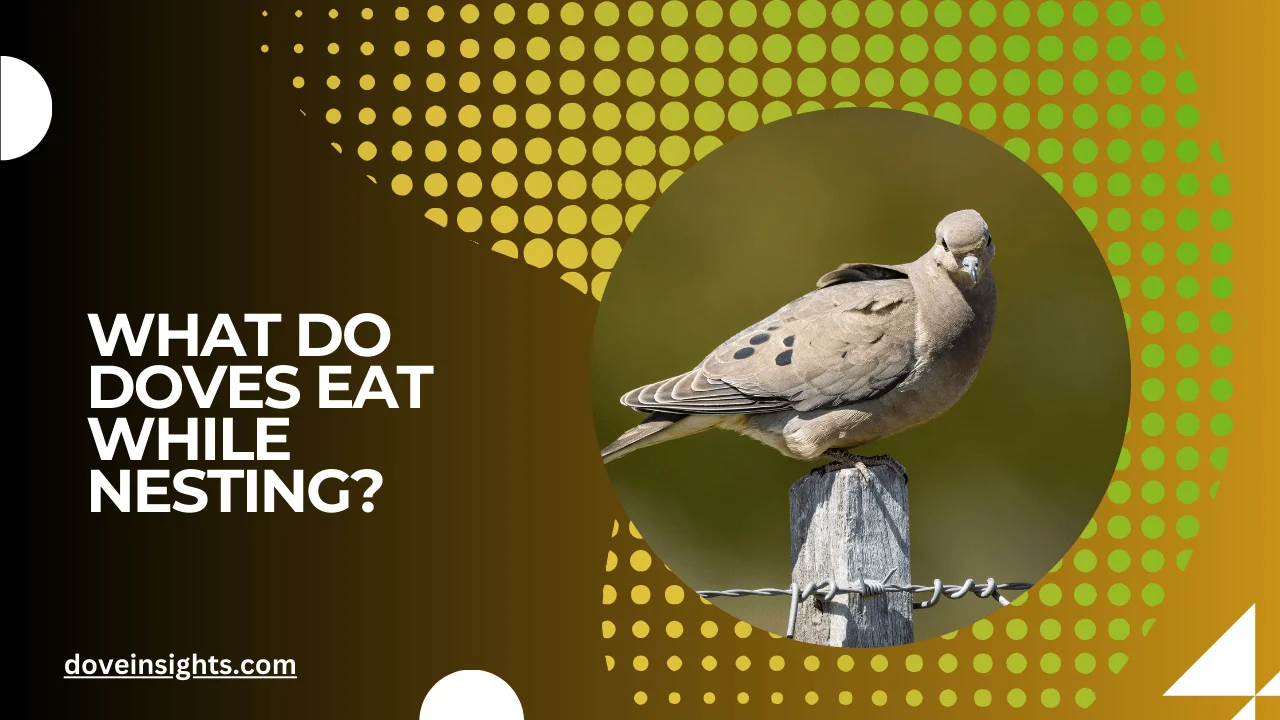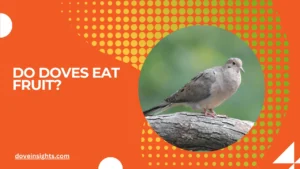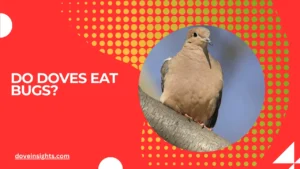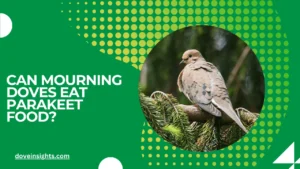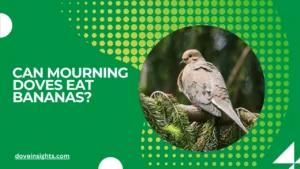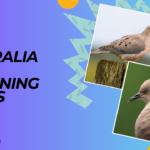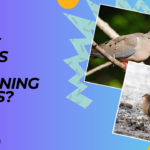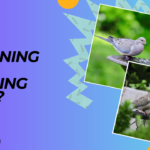Have you ever noticed a pair of doves perched delicately on a nest, tirelessly tending to their eggs or hatchlings? It’s a heartwarming scene that embodies nature’s tenderness and resilience.
But have you ever wondered what fuels these birds during this crucial period? The nesting phase is not only a physically demanding time for doves but also one of heightened vulnerability.
Understanding their diet during this phase can reveal fascinating insights into their behavior and survival strategies.
Doves, particularly mourning doves, are known for their simple yet specific dietary habits. During nesting, their nutritional needs shift slightly to support their increased energy demands.
From foraging for seeds to occasionally feeding on small fruits, their choices ensure that both the parents and their young thrive. This delicate balance of energy intake and parental care is a marvel of adaptation.
In this article, we’ll explore the dietary patterns of doves during nesting, the environmental factors influencing their food choices, and how you can help these gentle birds in your backyard.
Whether you’re a bird enthusiast or a curious nature lover, understanding what doves eat while nesting is not only fascinating but also offers practical ways to connect with and support wildlife.
Contents
Dietary Habits of Nesting Doves
Typical Dove Diet
Doves are primarily granivores, which means their diet consists mostly of seeds, grains, and small fruits. They favor seeds like millet, sunflower seeds, and safflower, which are rich in nutrients. These foods provide the energy required to sustain their demanding nesting activities.
Dietary Adjustments During Nesting
While nesting, doves may expand their diet to include foods that are more readily available or that offer additional energy. They might forage for small insects or consume nutrient-rich berries to ensure they meet their elevated energy needs.
How Doves Feed Their Chicks
For their chicks, doves produce a nutrient-rich substance called crop milk. This liquid is regurgitated by the parents and fed to the hatchlings, ensuring they receive the essential proteins and fats required for growth.
Environmental Influences on Dove Nutrition
Availability of Food Sources
The type of food doves consume during nesting depends on the availability of natural resources in their habitat. In urban areas, they may rely more on bird feeders, while in rural settings, their diet may consist primarily of wild seeds and grains.
Seasonal Changes
During spring and summer, doves have access to a wider variety of foods, including fresh seeds, fruits, and insects. However, in harsher seasons, their diet may be limited, making supplemental feeding by humans particularly beneficial.
Impact of Habitat Loss
Urbanization and deforestation can disrupt the natural food supply for doves. A decline in native vegetation reduces the availability of seeds and fruits, forcing them to adapt or migrate.
How to Support Nesting Doves’ Diet
Offering Bird Feeders
To support doves, provide platform feeders or ground trays filled with their favorite seeds. Avoid feeders with narrow perches, as these are unsuitable for their feeding habits.
Planting Native Vegetation
Introduce native plants and shrubs that produce seeds and fruits favored by doves. Species like mulberry and dogwood can serve as natural food sources while also providing shelter.
Avoiding Harmful Foods
Steer clear of feeding doves processed foods or bread, as these lack nutritional value and can harm their health. Similarly, salted seeds should be avoided, as they can lead to dehydration.
The Role of Crop Milk in Dove Nutrition
What Is Crop Milk?
Crop milk is a unique secretion produced by both male and female doves. It is rich in proteins, fats, and immune-boosting properties, making it the perfect food for their hatchlings during the early stages of life.
How It Supports Nestling Growth
Chicks are entirely dependent on crop milk for the first few days after hatching. This substance ensures that they grow rapidly and develop the strength needed for their fledgling stage.
Transition to Solid Food
As the chicks grow, the parents gradually introduce them to solid food, such as seeds and small fruits, while still supplementing their diet with crop milk.
Common Challenges and Solutions
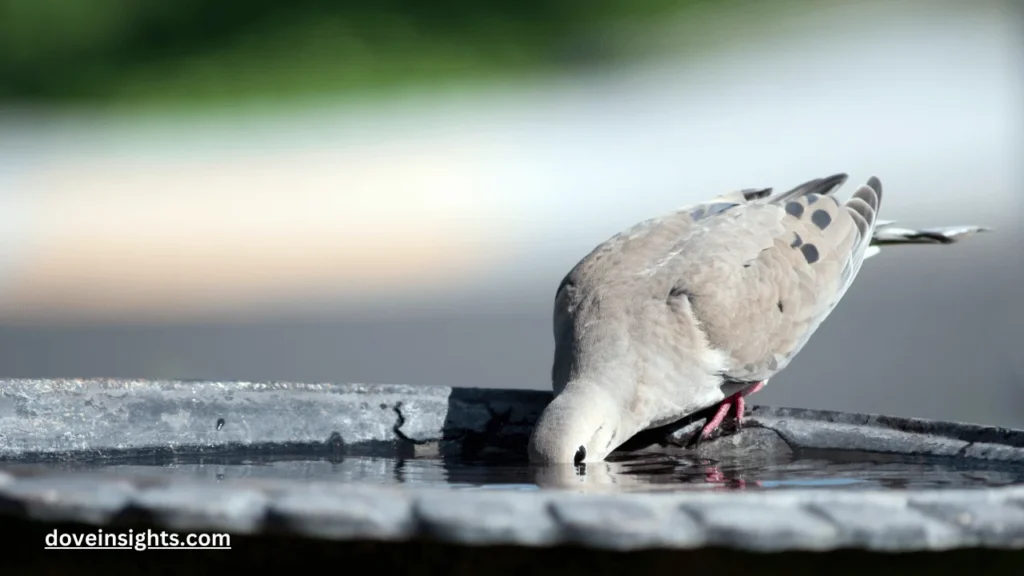
Food Scarcity
In areas where food is scarce, doves may struggle to find enough to sustain themselves and their chicks. Supplemental feeding with quality seeds can make a significant difference.
Predation Risks
While foraging, doves are vulnerable to predators like cats, hawks, and snakes. Providing safe feeding zones away from dense vegetation can help reduce these risks.
Weather Extremes
Extreme weather conditions, such as heavy rains or heat waves, can limit food availability. Offering shaded feeders and ensuring a steady supply of water can mitigate these challenges.
Conclusion
Understanding what doves eat while nesting is crucial for appreciating the delicate balance of their lives. From seeds and grains to the remarkable role of crop milk, their dietary habits are a testament to nature’s ingenuity.
By learning about their needs and providing support through thoughtful actions, you can help ensure these gentle birds thrive.
In summary, doves rely on a nutritious diet of seeds, fruits, and crop milk to sustain themselves and their chicks during nesting. Environmental factors, habitat support, and supplemental feeding all play a role in their success.
Caring for nesting doves is a simple yet meaningful way to connect with nature.
By fostering a dove-friendly environment, you not only help these birds but also contribute to a healthier ecosystem in your area.
FAQ’s
What do doves eat during nesting?
Doves primarily eat seeds, grains, and fruits, supplemented by insects and crop milk for their chicks.
What is crop milk?
Crop milk is a nutrient-rich secretion produced by doves to feed their hatchlings.
How can I attract doves to my yard?
Provide seeds, water, and safe nesting areas to attract doves.
Can I feed doves bread?
No, bread lacks nutrients and can harm doves. Stick to seeds and grains.
What kind of bird feeders are best for doves?
Platform feeders or ground trays are ideal for doves.
How do doves feed their chicks?
They regurgitate crop milk for the hatchlings during the early days of their life.
